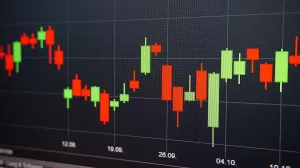How does the LME handle disputes between market participants?
3 min read
How does the LME handle disputes between market participants?
In the fast-paced world of metal trading, disputes between market participants are an inevitable part of doing business. Whether it’s disagreement over contract terms, delivery obligations, or trading practices, resolving disputes efficiently and fairly is essential to maintaining market integrity and investor confidence. The London Metal Exchange (LME), as a leading global metals market, has established robust mechanisms for handling disputes between market participants. In this comprehensive guide, we delve into how the LME navigates disputes, providing insights into its dispute resolution processes, policies, and implications for traders, investors, and industry stakeholders.
1. Clear Guidelines and Procedures
Central to the LME’s approach to handling disputes is the presence of clear guidelines and procedures outlining the steps to be followed when disputes arise. Market participants are expected to adhere to the LME’s rules and regulations, which provide a framework for conducting business and resolving disputes in a fair and transparent manner. The exchange’s rules cover various aspects of trading, including contract specifications, delivery procedures, market conduct, and dispute resolution mechanisms. By establishing clear guidelines and procedures upfront, the LME aims to minimize ambiguity and facilitate prompt resolution of disputes when they arise.
2. Mediation and Negotiation
When disputes occur between market participants, the LME encourages parties to first attempt to resolve the issue through mediation and negotiation. Mediation involves a neutral third party facilitating discussions between the disputing parties to help them reach a mutually acceptable resolution. The LME may provide mediation services or refer parties to external mediators with expertise in metals trading and market practices. Negotiation allows parties to engage in direct discussions to identify common ground, explore potential solutions, and negotiate mutually beneficial outcomes. By promoting mediation and negotiation, the LME seeks to foster constructive dialogue and preserve business relationships between market participants.
3. Arbitration and Adjudication
In cases where mediation and negotiation fail to resolve disputes, the LME offers arbitration and adjudication as alternative dispute resolution mechanisms. Arbitration involves appointing an independent arbitrator or panel of arbitrators to hear arguments and evidence from both parties and render a binding decision to resolve the dispute. Adjudication, on the other hand, involves referring the dispute to a designated adjudicator or panel of adjudicators for a non-binding opinion or recommendation on how the dispute should be resolved. The LME’s arbitration and adjudication processes provide parties with a formal mechanism for resolving disputes while preserving confidentiality and minimizing legal costs.
4. Compliance and Enforcement
Market participants are expected to comply with the LME’s dispute resolution mechanisms and abide by the decisions rendered through arbitration or adjudication. Failure to comply with arbitration awards or adjudication recommendations may result in disciplinary action by the LME, including sanctions, fines, or suspension of trading privileges. The exchange has established procedures for enforcing arbitration awards and adjudication recommendations to ensure that parties adhere to the resolution of disputes in a timely and effective manner. By upholding the integrity of its dispute resolution mechanisms, the LME aims to maintain trust and confidence in the fairness and reliability of its market operations.
Conclusion: Preserving Market Integrity and Trust
In conclusion, the London Metal Exchange (LME) is committed to preserving market integrity and trust by providing effective mechanisms for resolving disputes between market participants. From clear guidelines and procedures to mediation, arbitration, and adjudication processes, the LME offers a comprehensive framework for addressing disputes in the metals market. By promoting transparency, fairness, and accountability, the LME’s dispute resolution mechanisms contribute to a stable and orderly trading environment, fostering confidence among traders, investors, and industry stakeholders.
By promoting transparency, fairness, and accountability, the LME’s dispute resolution mechanisms contribute to a stable and orderly trading environment, fostering confidence among traders, investors, and industry stakeholders. Whether it’s mediation, arbitration, or adjudication, the LME’s commitment to resolving disputes efficiently and fairly underscores its role as a trusted marketplace for metals trading. As disputes are inevitable in any market, the LME’s robust dispute resolution mechanisms provide market participants with the confidence and assurance they need to navigate challenges and resolve differences in a professional and constructive manner.






